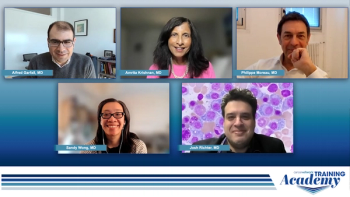
Before closing out their program on bispecifics in multiple myeloma, expert oncologists consider the value of these agents in more challenging patient populations.

Your AI-Trained Oncology Knowledge Connection!


Before closing out their program on bispecifics in multiple myeloma, expert oncologists consider the value of these agents in more challenging patient populations.

Following their review of non-BCMA-targeting bispecifics in multiple myeloma, panelists consider practical use of these agents and how they may fit into the real-world treatment paradigm.

A brief discussion on clinical trial data with cevostamab therapy followed by considerations for other non-BCMA-targeted agents being studied in the setting of multiple myeloma.

Switching its focus to non-BCMA-targeting therapies, a panel of experts consider the clinical data behind talquetamab in patients diagnosed with multiple myeloma,

Expert oncologists briefly review safety profiles of BCMA-targeted bispecifics in multiple myeloma and share practical insight on how to mitigate or address toxicities.

Shared insight on how experts select among the available BCMA-targeting bispecific antibodies and CAR T-cell therapies in patients with multiple myeloma.

Expert panelists reflect on other clinical trials aimed at defining the role for BCMA-targeting bispecifics in multiple myeloma and consider how they would utilize this class of agents in real-world practice.

Opening its discussion on BCMA-targeting bispecific antibodies in multiple myeloma, a panel of expert oncologists highlights key clinical data behind teclistamab.
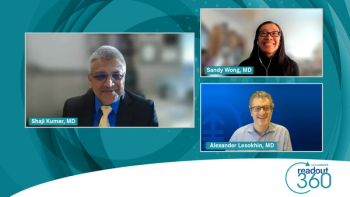
The panel closes their discussion with a look at an ongoing clinical trial in transplant-ineligible NDMM.
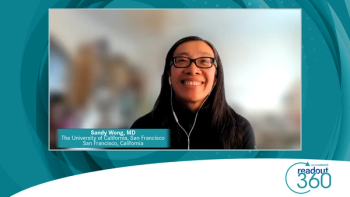
Dr Sandy Wong reviews data from a patient subgroup analysis of the MAIA trial in transplant-ineligible NDMM.
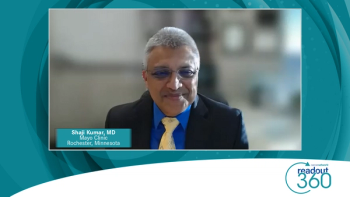
Shaji Kumar, MD, presents data from an updated analysis of the MAIA trial investigating daratumumab/lenalidomide/dexamethasone for transplant-ineligible NDMM.

The panel compares data between the three presented quadruplet combination regimens for NDMM, and which they would consider for older, frail patients.
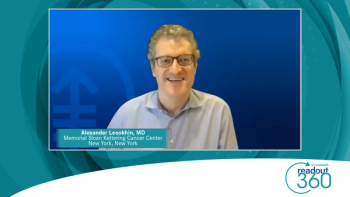
Alexander Lesokhin, MD, presents data from an interim analysis of the GMMG-CONCEPT trial investigating an isatuximab-based quadruplet regimen for high-risk NDMM.

The panel reviews possible treatment approaches for patients with high-risk NDMM, and how MRD negativity affects their decision making.

Sandy Wong, MD, presents data from a subgroup analysis of the GRIFFIN and MASTER trials in patients with transplant-eligible NDMM.

Drs Lesokhin and Wong detail their strategies for maintenance therapy after transplant in NDMM treatment.

Sandy Wong, MD, and Alexander Lesokhin, MD, discuss how they approach the treatment of transplant-eligible NDMM using the Dara-RVd regimen.

Shaji Kumar, MD, presents updated data from the GRIFFIN trial investigating combination daratumumab, lenalidomide, bortezomib, and dexamethasone for the treatment of transplant-eligible newly-diagnosed multiple myeloma (NDMM).
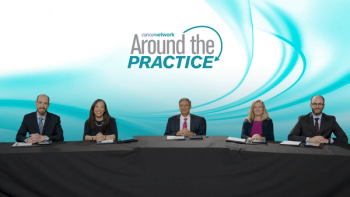
Closing out their discussion on the management of multiple myeloma, expert panelists highlight unmet needs and look toward future directions in care.

Expert perspectives on the advent of CAR T-cell therapy in relapsed/refractory multiple myeloma, and how its role may integrate with bispecific antibody therapy.

Before closing out their discussion on bispecific antibodies in relapsed/refractory multiple myeloma, key opinion leaders consider optimal sequencing of these agents.

A brief review of non–BCMA-targeted bispecific antibodies under investigation in patients with relapsed/refractory multiple myeloma.

Expert perspectives on recent clinical data on BCMA-targeted bispecific antibody therapy in patients with relapsed/refractory multiple myeloma.

Turning to the last module, expert panelists discuss the treatment armamentarium for patients experiencing early relapse in multiple myeloma.

Patient and disease factors that help to select best first-line therapy in the setting of transplant-ineligible multiple myeloma.

Switching their focus to transplant-ineligible multiple myeloma, panelists review available triplet therapy regimens for induction therapy.

A brief discussion how to select the appropriate treatment strategy in transplant-eligible newly diagnosed myeloma and whether there is a role for minimal residual disease in assessing response and treatment duration.

In light of recent clinical trial data, key opinion leaders reflect on the appropriate selection of transplant for patients with newly diagnosed multiple myeloma.

Opening discussion on the management of transplant-eligible newly diagnosed multiple myeloma, expert panelists consider the role of quadruplet therapy and transplant in this setting.
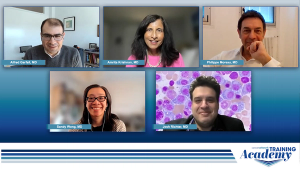
Published: May 2nd 2023 | Updated:
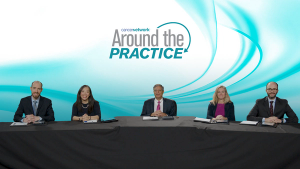
Published: January 30th 2023 | Updated:

Published: May 16th 2023 | Updated:

Published: February 13th 2023 | Updated:
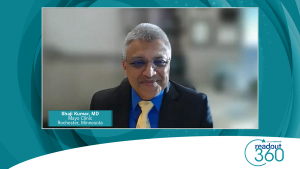
Published: March 30th 2023 | Updated: